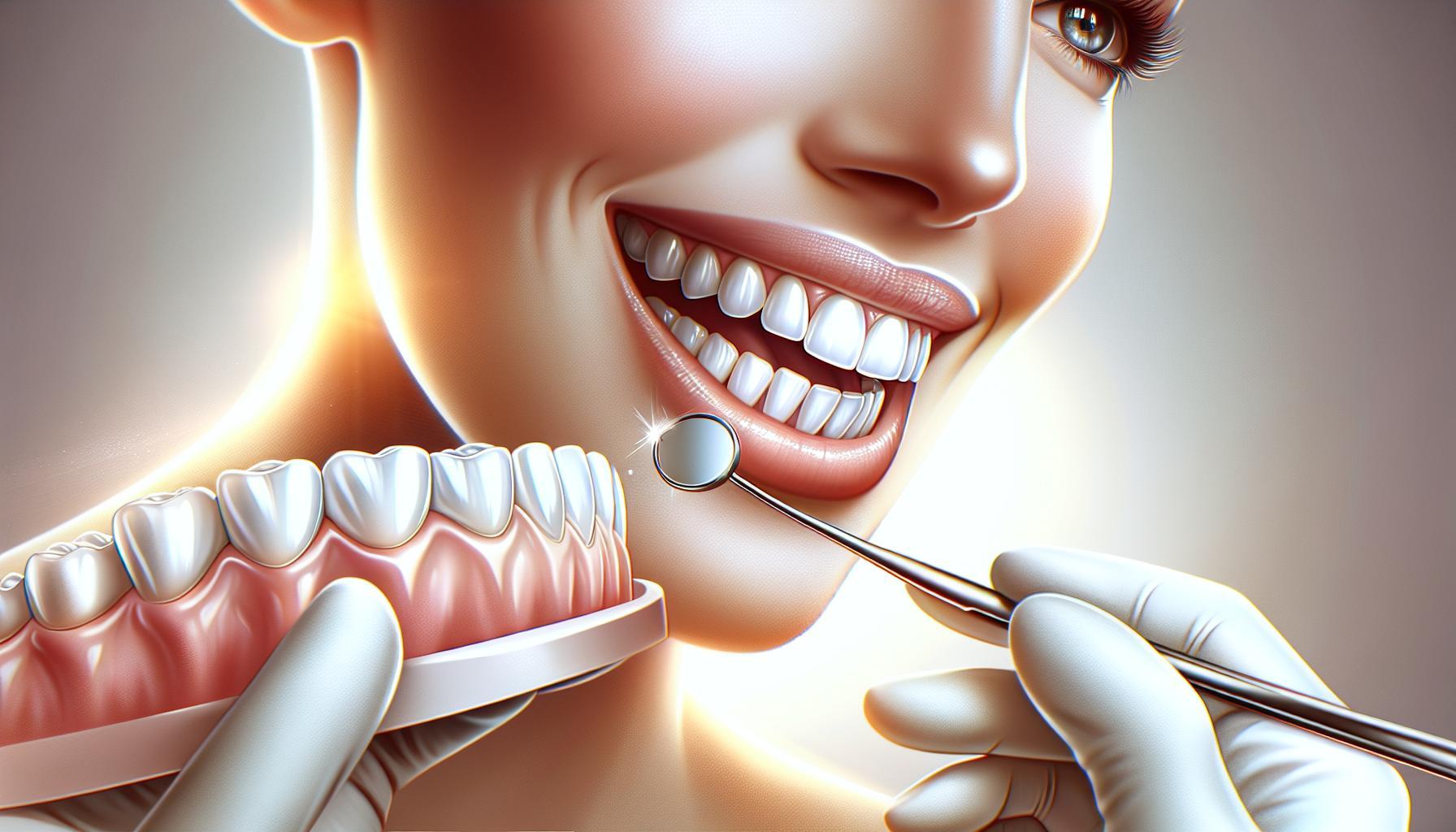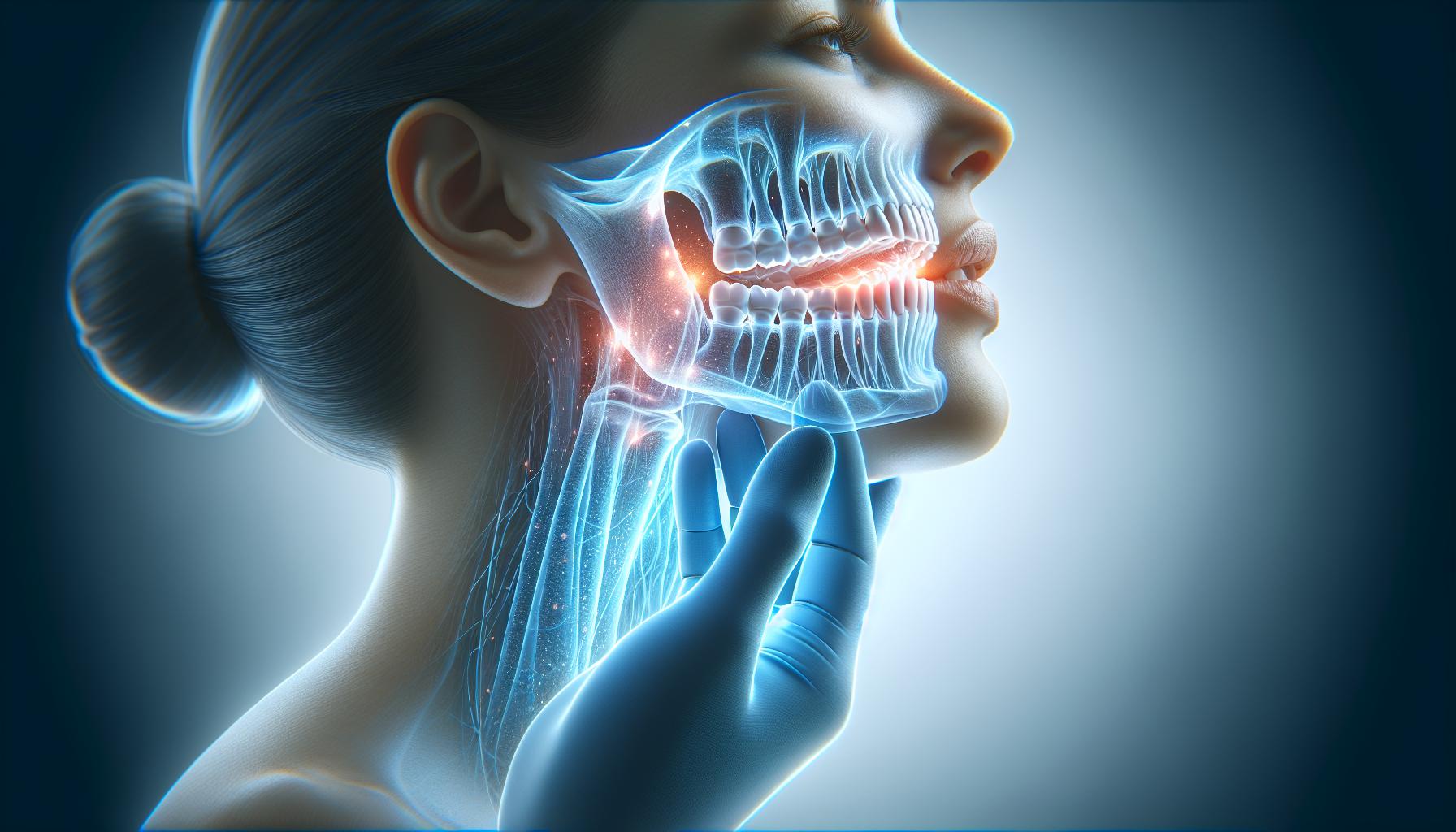Are you frustrated by stubborn tartar buildup on your teeth, yet hesitant to resort to harsh chemicals? Natural methods to eliminate dental plaque not only promote optimal oral health but also provide safe, effective alternatives for brightening your smile. Discover simple, chemical-free techniques to help you achieve a cleaner mouth and a healthier grin.
Understanding Tartar Buildup: What You Need to know
Engaging in proper dental care is essential for maintaining a luminous smile and overall health. Did you know that it only takes about 24 hours for plaque, the soft, sticky film of bacteria on your teeth, to harden into tartar if not adequately brushed away? Once tartar forms, its removal becomes significantly more challenging and often requires professional dental intervention. Understanding how tartar builds up is the first step in preventing its formation and maintaining a healthy mouth.
What is Tartar Buildup?
tartar, also known as dental calculus, is a hardened form of dental plaque that can cause various oral health issues if left untreated.It typically forms around the gum line and between teeth, providing a rough surface that attracts even more plaque and bacteria. This accumulation not only poses aesthetic concerns, such as yellowing teeth but can also lead to more severe health problems, including gum disease and cavities. Some common factors contributing to tartar buildup include poor oral hygiene, diet high in sugars, and even certain medications that reduce saliva flow.
How to Stop Tartar Buildup Before It Starts
Preventing tartar buildup is crucial for maintaining both your smile and your health.Here are some effective strategies to incorporate into your daily routine:
- Daily Brushing: Brush your teeth at least twice a day using a fluoride toothpaste to help remove plaque before it hardens.
- Floss Regularly: Flossing daily helps eliminate plaque buildup between teeth where a toothbrush may not reach.
- Use Antimicrobial Mouthwash: Rinsing with a mouthwash that kills bacteria can help reduce plaque buildup.
- Regular dentist Visits: Professional cleanings are vital for removing tartar and can help you establish a personalized care routine.
Naturally Managing Tartar with Home Remedies
For those looking to explore natural ways to manage tartar buildup, some chemical-free methods have proven helpful.thes methods can complement your oral hygiene routine and may aid in reducing tartar formation:
- Baking Soda: Using a baking soda paste made with water can effectively clean your teeth while neutralizing acids that promote plaque.
- Apple Cider Vinegar: Diluting apple cider vinegar with water can help remineralize teeth and reduce plaque, but it should be used sparingly due to its acidity.
- Diet choices: Incorporating crunchy fruits and vegetables,like apples and carrots,can naturally scrub your teeth and stimulate saliva production,which helps protect against plaque.
by incorporating these strategies into your daily routine, you can significantly reduce the risk of tartar buildup and maintain a healthier smile. remember, while natural methods can be effective, they should complement and not replace regular dental care practices. Engaging with your dentist for tailored advice remains crucial in your fight against dental calculus and maintaining optimal oral health.
The role of Diet in Preventing Tartar Formation
Did you know that dietary choices can significantly influence your dental health, especially in the formation of tartar? While regular brushing and flossing are essential, what you eat plays a crucial role in either promoting or preventing the accumulation of these unsightly deposits on your teeth. by adopting a diet rich in specific nutrients and minimizing your intake of harmful substances, you can actively work toward maintaining a tartar-free smile.
Key Nutrients for Dental Health
Certain nutrients are instrumental in fortifying your oral health and reducing the likelihood of tartar buildup. Consider incorporating the following into your diet:
- Calcium: Essential for strong teeth and bones, calcium helps to remineralize tooth enamel, making it more resistant to decay and tartar formation. Sources include dairy products, leafy greens, and fortified plant-based milks.
- Vitamin C: This vitamin is vital for gum health and healing tissues, with a deficiency potentially leading to gum diseases that encourage tartar buildup. Citrus fruits, strawberries, and bell peppers are excellent sources.
- Phosphorus: Found in foods like fish, eggs, and nuts, phosphorus works alongside calcium to strengthen tooth enamel.
- Fiber: A diet high in fiber can help scrub plaque away as you chew. Whole fruits and vegetables act as natural toothbrushes, promoting a cleaner mouth and inhibiting tartar progress.
foods to Avoid
Equally important as knowing what to eat is being aware of what to limit or eliminate in your diet. Certain foods can contribute to the sticky plaque that leads to tartar.Here’s what to watch out for:
- Sugary Snacks and Beverages: These not only feed harmful bacteria in your mouth but also increase acid production, which can lead to decay and tartar.
- Starchy Foods: Foods like chips and white bread can break down into sugars, promoting plaque buildup if not cleaned properly from your teeth.
- Acidic Foods: Citrus fruits and soda can erode enamel if consumed excessively, making teeth more susceptible to tartar.
A Practical Approach to Diet
Creating a balanced diet that prioritizes oral health not only helps prevent tartar but also promotes overall well-being. Here’s a simple meal plan to illustrate how you can incorporate these elements seamlessly:
| Meal | Food Items |
|---|---|
| Breakfast | Greek yogurt topped with berries and a sprinkle of almonds |
| Lunch | Spinach salad with cherry tomatoes, nuts, and lemon vinaigrette |
| Snack | Carrot sticks and hummus |
| dinner | Grilled salmon with steamed broccoli and quinoa |
By choosing nutrient-dense foods and avoiding harmful ones, you’re taking proactive steps toward eliminating tartar and promoting a revitalized smile.Each choice you make at the table can be a step towards a healthier mouth, reinforcing the idea that how to naturally remove tartar from teeth hinges significantly on your dietary habits.
Effective Natural Remedies to Combat Tartar Accumulation
Did you know that over 60% of adults have tartar build-up on their teeth? This hardened plaque not only affects the appearance of your smile but can also lead to serious dental issues. Fortunately, there are several effective natural remedies available that can definitely help reduce tartar accumulation without resorting to harsh chemicals.Understanding how to take care of your dental health naturally is an empowering strategy that benefits both your teeth and overall wellness.
Essential Oils and Their Impact on Oral Health
One of the most potent natural solutions for combating tartar is the use of essential oils. Oils such as tea tree, clove, and peppermint have antimicrobial properties that not only combat bacteria but also help keep your gums healthy.
To utilize this remedy, you can create a natural mouthwash:
- Mix 1 cup of water with 2-3 drops of your chosen essential oil.
- Swish the mixture around your mouth for 30 seconds, making sure to reach all areas.
- Spit it out and rinse with water afterward.
Make this a part of your daily routine, and you’ll begin to notice an improvement in your oral health with reduced tartar formation over time.
Homemade Baking Soda toothpaste
Another effective method revolves around baking soda. Known for its mild abrasiveness, baking soda can definitely help scrub away plaque and tartar effectively. Making a homemade baking soda toothpaste is simple:
| Ingredients | Benefits |
|---|---|
| Baking Soda | Helps to exfoliate and break down tartar. |
| Water | Acts as a binder and helps create a paste. |
| Optional: Coconut Oil | Provides antibacterial properties and flavor. |
To make the toothpaste:
- Mix 2 tablespoons of baking soda with enough water to form a paste.
- Optionally, combine it with 1 teaspoon of coconut oil for additional benefits.
- use this paste rather of your regular toothpaste a few times a week.
This paste not only targets tartar but also helps to whiten your teeth naturally.
Power of Fruits and Vegetables
Incorporating certain fruits and vegetables into your diet can significantly influence your dental health. Foods like apples, carrots, and celery are crunchy and stimulate saliva production, which naturally cleanses the mouth and reduces the risk of tartar build-up.
Consider snacking on these crunchy foods throughout your day. Not only will they keep your teeth cleaner, but they also serve as a healthy alternative to sugary snacks that contribute to plaque accumulation.
By adopting these natural methods and incorporating them into your oral hygiene routine, you’re taking proactive steps toward not only learning how to naturally remove tartar from teeth but also fostering a healthier mouth surroundings. regular maintenance and mindful choices can yield noticeable results over time, ensuring your smile remains bright and healthy.
The Importance of Regular Oral Hygiene in tartar Control
The Essential Role of Oral Hygiene in Tartar Control
did you know that neglecting your oral hygiene routine can lead to the formation of tartar, a hardened plaque that can only be removed by a dental professional? Tartar not only affects the aesthetic appeal of your teeth but can also lead to serious dental issues such as gum disease and tooth decay.Regular oral hygiene practices are fundamental in preventing tartar build-up and ensuring the long-term health of your teeth and gums.
To effectively manage and prevent tartar, an established routine should include a combination of daily brushing and flossing. Here’s how these practices play a critical role:
- Brushing: Brushing your teeth at least twice a day with fluoride toothpaste helps to remove plaque before it hardens into tartar. Focus on all surfaces of each tooth, utilizing proper technique.
- Flossing: Flossing at least once a day reaches areas that brushing alone can’t, particularly between teeth and along the gumline, where plaque tends to accumulate and form tartar.
- Routine Dental Visits: Regular check-ups and professional cleanings are crucial.Dentists can remove tartar buildup that home care can’t conquer, providing a fresh start for your oral health.
Incorporating these practices can drastically reduce the risk of tartar formation. Additionally, exploring natural methods from guides such as “How to Naturally Remove Tartar From Teeth: Chemical-Free Methods” can complement your efforts. tips like using baking soda as a toothpaste alternative or rinsing with apple cider vinegar may help minimize deposits but should not replace regular brushing and flossing.
Practical Tips for Enhancing Your Routine
Here’s a simple table highlighting daily and weekly habits to reinforce your efforts against tartar:
| Habit | frequency |
|---|---|
| Brush with fluoride toothpaste | Twice daily |
| Floss between teeth | Once daily |
| Use mouthwash | Daily (optional) |
| Professional dental cleanings | Every 6 months |
By committing to these practices, you are not only taking meaningful steps toward tartar control, but you are also setting the foundation for a healthier smile, making it less likely that you will need to seek out chemical-free methods for removal.
Natural Teeth Cleaning Techniques You Can Try at Home
Did you know that your kitchen holds the keys to a brighter smile and healthier teeth? Many people overlook the power of natural ingredients readily available at home for maintaining oral hygiene. If you’re curious about how to naturally remove tartar from teeth without resorting to harsh chemicals, there are several effective techniques worth trying.
Homemade Pastes and Rinses
creating your own dental pastes can be as simple as mixing a few common ingredients. Here are some tried and true natural recipes:
- Baking Soda and Water Paste: Combine two teaspoons of baking soda with enough water to form a thick paste. Use this mixture to gently scrub your teeth. Baking soda is mildly abrasive, which can definitely help in removing surface stains and tartar.
- Coconut Oil Pulling: Swirling a tablespoon of coconut oil in your mouth for 15-20 minutes can help improve oral health. This ancient technique draws out toxins and can reduce plaque buildup.
- Whitening Toothpaste with Charcoal: Activated charcoal can absorb toxins and may help in removing tartar. Mix activated charcoal powder with water to create a paste and use it once a week for best results.
Fruits and Vegetables That Cleanse
Certain fruits and vegetables not only contribute to your overall health but also enhance your oral hygiene. Incorporating these into your diet can help combat tartar naturally:
- Strawberries: They contain malic acid, which can gently polish teeth and remove stains.simply crush a few strawberries and rub the mixture on your teeth, letting it sit for a few minutes before rinsing.
- Apples: Known as nature’s toothbrush, their fibrous texture can scrape off plaque, making them an excellent snack for oral health.
- Carrots: Crunchy and rich in fiber, carrots stimulate saliva production, which helps wash away food particles and bacteria.
Enhance Your Brushing Technique
Your technique matters as much as the products you use when it comes to cleaning your teeth effectively. Here are some tips to elevate your dental care routine:
- Use the Right Angle: Position your toothbrush at a 45-degree angle against the gum line. This allows the bristles to reach under the gum line effectively.
- Two-Minute Rule: Make sure to brush your teeth for at least two minutes, spending equal time on all quadrants of your mouth.
- Gentle Pressure: Avoid applying too much pressure, as this could damage your gums. A gentle, circular motion is beneficial for plaque removal.
Table of Natural Ingredients and Their Benefits
| Ingredient | Benefit |
|---|---|
| Baking Soda | Removes plaque and stains due to its mild abrasiveness. |
| Coconut Oil | Reduces harmful bacteria and provides anti-inflammatory properties. |
| Strawberries | Natural whitener due to malic acid content. |
| Activated Charcoal | Absorbs toxins and may help lift stains. |
Integrating these natural methods into your routine can definitely help you effectively tackle tartar buildup while maintaining a vibrant smile. By opting for chemical-free solutions and being mindful of your oral hygiene habits, you can enjoy numerous benefits both for your teeth and overall health.
How Essential Oils Can Aid in Tartar Removal
Harnessing the Power of Essential Oils for tartar Removal
In the ongoing quest for a healthy smile, one of the critical challenges many face is tartar buildup on teeth. This hardened form of plaque can lead to serious dental issues if not managed properly. Interestingly, the use of essential oils has emerged as a promising natural method to help combat tartar thru their unique properties. These concentrated plant extracts not only offer refreshing aromas but also possess antibacterial, anti-inflammatory, and cleansing benefits that can support oral health.
What Makes Essential Oils Effective?
Essential oils like tea tree, peppermint, and clove are particularly noted for their ability to inhibit the growth of bacteria that contribute to plaque formation. When used in oral care routines, they can provide a gentle yet effective means to cleanse the mouth and maintain a brighter, healthier smile.A few key essential oils and their benefits include:
- Tea Tree Oil: Renowned for its antimicrobial properties, it can help reduce the bacteria that form plaque and tartar.
- Peppermint Oil: Provides not only a refreshing taste but also helps in reducing bad breath while contributing to overall oral hygiene.
- Clove Oil: Known for its analgesic properties, clove oil can soothe gum irritation while targeting harmful bacteria.
To incorporate essential oils into your dental routine for tartar removal, consider making a homemade mouthwash. A simple recipe involves combining a few drops of your chosen essential oil with water. swish this mixture around your mouth for about 30 seconds to a minute, then spit it out, ensuring not to swallow.
Practical Tips for Using Essential Oils
when using essential oils for tartar removal, always prioritize quality. Look for pure, therapeutic-grade oils to ensure that you are getting the benefits without any harmful additives. Also, it’s critical to dilute essential oils, as they are highly concentrated. Here’s a quick guide:
| Essential Oil | Recommended Dilution | Usage frequency |
|---|---|---|
| Tea Tree Oil | 1-2 drops in 1 cup of water | 2-3 times per week |
| Peppermint Oil | 1 drop in 1 cup of water | Daily |
| Clove Oil | 1 drop in 1 cup of water | 2-3 times per week |
Incorporating these oils into your routine may help not only in keeping tartar at bay but also in promoting overall oral hygiene. By understanding how to naturally remove tartar from teeth using chemical-free methods like essential oils, you can enjoy a cleaner mouth and a brighter smile, without the harsh effects of synthetic dental care products.
Foods That Help Whiten Teeth and Reduce Tartar
Did you know that your diet can play a significant role in maintaining your dental health? Certain foods not only contribute to a brighter smile but are also effective in reducing tartar buildup, which is essential for promoting healthier teeth and gums. By incorporating these natural options into your meals,you can promote oral hygiene while enjoying delicious treats.
Fresh, Crunchy Fruits and Vegetables
Among the best allies in your quest for whiter teeth and reduced tartar are fresh, crunchy fruits and vegetables. Foods such as apples, carrots, and celery act as natural toothbrushes, their fibrous texture helping to scrub away plaque and food particles as you chew. Moreover, they stimulate saliva production, which is crucial for neutralizing acids and washing away debris that can lead to tartar accumulation.
- Apples: Their crisp texture is perfect for scrubbing teeth,and they also contain malic acid,which can gently whiten enamel.
- Carrots: Rich in beta-carotene, carrots help in keeping your gums healthy and their crunchiness fights plaque.
- Celery: Acting like a natural toothbrush,celery can help to remove bits of food lodged between your teeth.
Dairy Products for Dental Defense
Dairy products, particularly cheese, yogurt, and milk, are not only great for your bones but also for your teeth. These foods are rich in calcium and phosphate, essential minerals that aid in rebuilding tooth enamel and neutralizing acids. Cheese, in particular, has been shown to increase saliva flow, providing further protection against cavities and tartar buildup.
- Cheddar Cheese: Eating cheese after a meal can help neutralize acids and restore pH balance in your mouth.
- Plain Yogurt: The probiotics in yogurt support a healthy oral microbiome, which can inhibit the growth of harmful bacteria.
- Milk: Its calcium and phosphorous content helps remineralize teeth and fortify enamel.
Incorporate Green tea and Nuts
Drinking green tea may offer surprising benefits for oral health due to its high content of polyphenols, which can reduce bacteria and prevent plaque accumulation. Additionally, incorporating nuts such as almonds can be advantageous. Not only are they crunchy, which aids in cleaning teeth, but they also contain calcium and other nutrients that support dental health.
| Food | Benefits |
|---|---|
| Green Tea | Reduces bacteria,inhibits plaque formation |
| Almonds | Rich in calcium,crunchy texture helps clean teeth |
By consciously choosing these foods and integrating them into your diet,you can take meaningful steps toward how to naturally remove tartar from teeth while promoting brighter smiles. Each bite contributes to better dental health and can definitely help you maintain a confident, radiant smile.
The benefits of Professional Cleanings for Long-Term Health
Did you know that maintaining oral hygiene isn’t just about preventing cavities or freshening your breath? Regular professional cleanings can play a crucial role in promoting long-term health and well-being, particularly when it comes to minimizing tartar buildup. While there are effective chemical-free methods you can employ at home to remove tartar, professional cleanings ensure that your mouth remains in optimal condition and can prevent far more serious health issues down the road.
Why Professional Cleanings Matter
While everyday brushing and flossing are essential, they frequently enough don’t suffice to eradicate the plaque and tartar that accumulate over time. Professional cleanings performed by dental hygienists utilize specialized tools that can reach areas of your mouth that may go neglected easily. This process is vital for several key reasons:
- Prevent Gum Disease: Tartar buildup can lead to gingivitis and more severe periodontal diseases, which have been linked to various systemic health issues, including heart disease.
- Early Detection of issues: Regular visits allow dental professionals to identify potential problems like cavities or early signs of oral cancer before they escalate.
- Improved Breath and Appearance: A professional cleaning will eliminate stubborn stains, leaving your teeth cleaner and your breath fresher, which boosts your confidence in social interactions.
The Link Between Oral Health and Overall Well-being
Research continues to uncover the connections between oral health and general health, revealing that maintaining a clean mouth can have benefits that go beyond aesthetics. Poor oral health can lead to significant health complications, such as diabetes, respiratory infections, and even complications during pregnancy. For those looking to understand how to naturally remove tartar from teeth using chemical-free methods, it’s essential to recognize that professional cleanings are a complement to these methods, not a replacement.
| health Benefit | Description |
|---|---|
| Decreased Risk of Heart Disease | Healthy gums contribute to better heart health by reducing inflammation linked to cardiovascular problems. |
| Better Blood Sugar Control | individuals with diabetes can manage their condition more effectively when their oral health is prioritized. |
| Enhanced Cognitive Function | Gum disease has been associated with increased risk of dementia, making oral care crucial for mental health. |
Incorporating professional cleanings into your oral care regimen can thus complement your efforts in learning how to naturally remove tartar from teeth through chemical-free methods. By taking proactive steps, you’re not just investing in your dental health but your overall health as well. Prioritizing regular professional cleanings, combined with effective at-home techniques, will pave the way for a healthier and brighter future.
Daily Habits to Maintain a Tartar-Free Smile
Did you know that more than 68% of adults in the U.S. have some form of gum disease? One major contributor to this statistic is the buildup of tartar, a hardened deposit of plaque that can lead to gingivitis and other dental issues. Fortunately, adopting simple daily habits can significantly reduce your risk of tartar buildup and help you maintain a brighter, healthier smile without resorting to chemical treatments.
Establish a Robust Oral Hygiene Routine
A consistent oral hygiene routine is your first line of defense against tartar accumulation. This includes:
- brushing Twice a day: Use fluoride toothpaste and a soft-bristle toothbrush to gently remove plaque from your teeth. Make sure to spend at least two minutes brushing, covering all surfaces of your teeth, including those hard-to-reach areas.
- Floss Daily: Flossing is essential for cleaning between your teeth, where a toothbrush often misses. Make it a point to floss at least once a day to prevent plaque from hardening into tartar.
- Use Mouthwash: An antibacterial mouthwash can help eliminate remaining bacteria in your mouth and provide an extra layer of protection against tartar buildup.
Opt for Tartar-Removing Foods
Certain foods can naturally combat tartar buildup while providing additional dental benefits. Increase your intake of the following:
| Food | Benefits |
|---|---|
| Apples | Scrubs your teeth and stimulates saliva production, which helps neutralize acids. |
| Carrots | crunchy texture helps remove plaque while also providing Vitamin A for gum health. |
| Celery | Acts as a natural scrubber and increases saliva flow, reducing acidity. |
| Dairy Products | Rich in calcium and phosphates that help remineralize your teeth. |
| Green Tea | Contains catechins that reduce bacteria in the mouth, minimizing plaque formation. |
stay Hydrated and avoid Risky Habits
Hydration plays a crucial role in maintaining oral health. Water helps wash away food particles and bacteria, reducing the chances of plaque turning into tartar. Aim to drink plenty of water throughout the day, especially after meals.
Additionally, minimizing certain habits can further protect your smile. For instance, avoid tobacco products, which not only stain teeth but also increase the risk of tartar and gum disease. Reducing sugary snacks and beverages will also help keep your tooth enamel intact and prevent plaque buildup.
By integrating these daily habits into your routine, you’ll be well-equipped to effectively combat tartar. Adopting a holistic approach of natural oral care, as outlined in methods for how to naturally remove tartar from teeth without chemicals, can leave your smile brighter and healthier for years to come.
FAQ
How to Naturally Remove Tartar From Teeth: Chemical-Free Methods?
The primary method to naturally remove tartar from teeth includes regular brushing with baking soda and practicing good oral hygiene. Additionally,using a mixture of vinegar and water can definitely help break down tartar deposits over time.
Tartar, or dental calculus, forms when plaque hardens on your teeth. Regular brushing with a baking soda paste can help keep your teeth clean while neutralizing acids.You can also consider rinsing with a diluted mixture of vinegar and water to assist in tartar removal.
What is tartar and why does it form?
Tartar is a hard deposit that forms on teeth when plaque isn’t removed. It develops when saliva and bacterial plaque combine with dietary minerals, resulting in hardened dental deposits.
If not addressed, tartar can lead to more serious dental problems, including gum disease. Maintaining a strict oral care routine, like brushing and flossing daily, is vital in preventing tartar buildup.
Can I remove tartar at home?
Yes, you can remove tartar at home using natural methods, such as regular brushing with baking soda or using a vinegar rinse. These methods can reduce tartar buildup between dental visits.
However, it’s important to note that while home remedies are effective, they are most beneficial as preventive measures.Regular professional cleanings are essential for maintaining optimal dental health to eliminate tartar that cannot be removed at home.
How frequently enough should I remove tartar from my teeth?
You should aim to remove tartar from your teeth through proper brushing and flossing twice a day. Regular dental check-ups every six months also provide a thorough cleaning by professionals.
While home methods can help, the buildup of tartar over time requires professional intervention. Don’t hesitate to schedule an appointment with your dentist if you notice signs of tartar.
Why does tartar lead to dental problems?
Tartar can lead to dental issues because it provides a rough surface for plaque to cling to, resulting in cavities and gum disease. The rough texture of tartar makes it tough to remove, allowing bacteria to thrive.
As tartar accumulates, it may lead to inflammation and gum infection, which is why it’s crucial to engage in preventive measures, such as daily brushing and regular dental visits.
What natural remedies can help prevent tartar buildup?
To prevent tartar buildup, consider using natural remedies like brushing with baking soda, rinsing with diluted apple cider vinegar, and consuming crunchy fruits and vegetables that naturally clean teeth.
Incorporating these methods can definitely help keep plaque at bay and promote healthy gums. Eating fiber-rich foods can also stimulate saliva production, which helps wash away food particles and bacteria.
Can essential oils help in removing tartar?
Yes, certain essential oils, such as tea tree oil and peppermint oil, may help in preventing tartar and supporting oral hygiene when combined with proper brushing and rinsing practices.
These oils have antibacterial properties that can inhibit bacterial growth in the mouth. Always dilute essential oils before use and consult your dentist if you’re considering them as part of your dental care routine.
Wrapping Up
naturally removing tartar from your teeth can be a manageable and empowering journey. By incorporating simple yet effective methods like regular brushing with baking soda, using natural exfoliants such as fruit-based scrubs, and maintaining a diet rich in crunchy fruits and vegetables, you can take significant steps toward a healthier smile. Remember, while these techniques can help reduce tartar buildup, they are not substitutes for professional dental care.Regular visits to your dentist are crucial for maintaining optimal oral health. Embrace these natural methods with confidence, and don’t hesitate to seek expert advice when needed. your smile deserves the best, so start taking action today—explore, engage, and empower yourself on the path to a brighter, healthier mouth!









